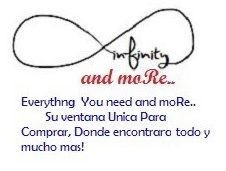Taxation in Opening Cafe New Cafe Store
Taxation in Opening Cafe New Cafe Store
When opening a café or any business, understanding grubcityllc.com taxation is crucial for compliance and financial planning. In a sole proprietorship—the simplest form of business structure—taxation is relatively straightforward. Here’s an overview:
Taxation in Sole Proprietorships:
- Pass-Through Taxation: Sole proprietorships are “pass-through” entities. This means the business itself does not pay taxes. Instead, the owner reports the business income and expenses on their personal tax return.
- Schedule C: Business income and expenses are reported on Schedule C (Profit or Loss from Business) of the owner’s individual tax return (Form 1040).
- Self-Employment Taxes: Sole proprietors are subject to self-employment taxes, which cover Social Security and Medicare contributions for self-employed individuals. These taxes are typically higher than those paid by employees of a company because sole proprietors pay both the employee and employer portions.
- Estimated Quarterly Taxes: Sole proprietors are responsible for paying estimated quarterly taxes to the IRS to cover income taxes and self-employment taxes. Failure to pay estimated taxes timely could result in penalties.
Key Tax Considerations for a Café:
- Sales Tax: Cafés typically collect sales tax on food and beverages sold. The sales tax rates and regulations vary by state and locality.
- Employee Taxes: If you hire employees, you’ll be responsible for withholding federal income tax, Social Security tax, and Medicare tax from their wages and paying the employer’s portion of Social Security and Medicare taxes.
- Deductions and Credits: Sole proprietors can deduct legitimate business expenses, such as ingredients, equipment, utilities, rent, wages, and marketing expenses, to reduce taxable income.
- Accounting and Record-Keeping: Maintain accurate financial records of income and expenses. Good record-keeping is crucial for preparing tax returns and substantiating deductions.
Seeking Professional Advice:
Given the complexities of taxation and business compliance, consider consulting with a certified public accountant (CPA) or tax professional who specializes in small businesses or the food service industry. They can offer guidance on tax planning, deductions, compliance requirements, and help you maximize tax benefits while staying compliant with tax laws.
Understanding tax implications and fulfilling tax obligations is vital for the financial health and legal compliance of your café business. Stay informed, keep accurate records, and seek professional advice to ensure your business meets its tax responsibilities
